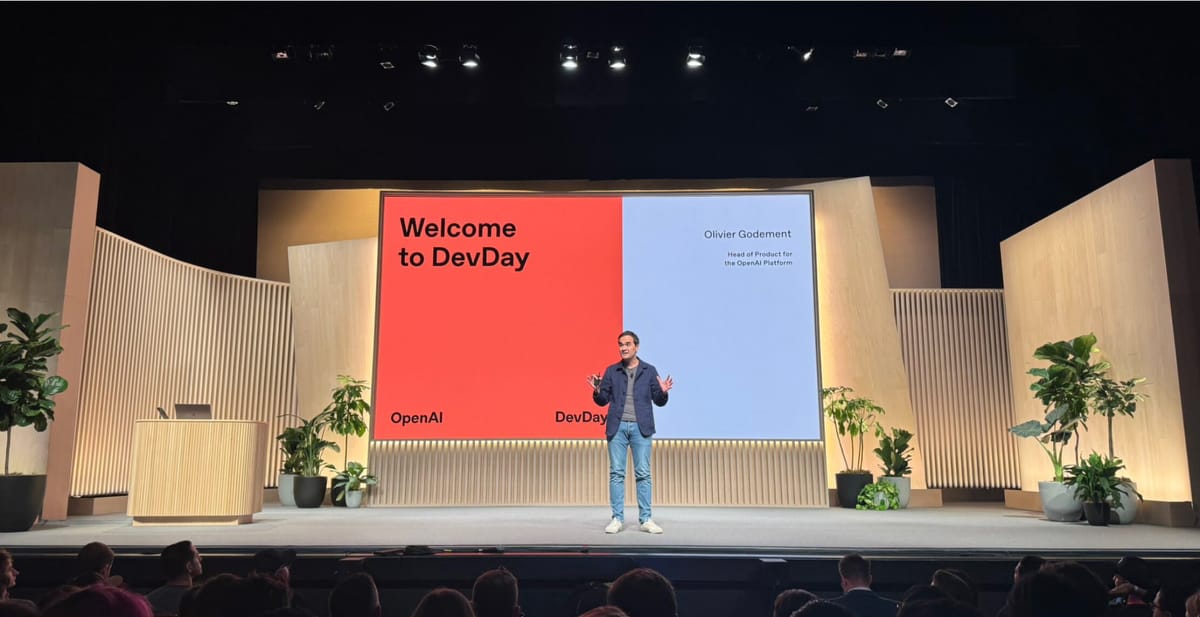
OpenAI's DevDay 2024, held Tuesday in San Francisco, marked a notable departure from last year's high-profile event. The subdued gathering, which wasn't live-streamed, introduced four key innovations aimed at enhancing the developer experience.
Realtime API: Enabling Speech-to-Speech Experiences
OpenAI unveiled a public beta of the Realtime API, allowing paid developers to create low-latency, multimodal applications. This new offering supports natural speech-to-speech conversations using six preset voices, similar to ChatGPT's Advanced Voice Mode.
The API streamlines the process of building voice-enabled applications, eliminating the need to combine multiple models for transcription, inference, and text-to-speech conversion. This approach aims to preserve emotional nuances and reduce latency in conversational experiences.
Speak, a language learning app, uses Realtime API to power its role-play feature, encouraging users to practice conversations in a new language.
Pricing for the Realtime API is set at $5 per million input tokens and $20 per million output tokens for text, while audio input costs $100 per million tokens and audio output costs $200 per million tokens.
Vision Fine-Tuning: Customizing GPT-4o for Image Understanding
Developers can now fine-tune GPT-4o with images and text, enhancing its visual comprehension capabilities. This feature opens up possibilities for improved visual search, object detection in autonomous vehicles, and medical image analysis.
Early adopters have reported significant improvements. Grab, a Southeast Asian food delivery and rideshare company, saw a 20% increase in lane count accuracy and a 13% improvement in speed limit sign localization using just 100 training examples.
Prompt Caching: Reducing Costs and Latency
OpenAI introduced Prompt Caching (similar to what Anthropic provides), offering automatic discounts on inputs the model has recently processed. This feature applies to the latest versions of GPT-4o, GPT-4o mini, o1-preview, and o1-mini, as well as their fine-tuned variants.
Cached prompts are offered at a 50% discount compared to uncached ones, potentially leading to significant cost savings for developers using repetitive contexts in their applications. Caches are typically cleared after 5-10 minutes of inactivity and are always removed within one hour of the cache's last use. You can learn more here.
Model Distillation: Streamlining AI Model Development
OpenAI’s new Model Distillation offering simplifies the process of fine-tuning cost-efficient models using outputs from larger, more capable models like GPT-4o and o1-preview. This integrated workflow includes Stored Completions and Evals, allowing developers to capture input-output pairs, fine-tune models, and evaluate performance all within the OpenAI platform.
This approach enables developers to improve smaller models like GPT-4o mini for specific tasks, achieving comparable performance to larger models at a reduced cost.
OpenAI's DevDay 2024 signaled a shift towards more focused, developer-centric innovations. While the event lacked the fanfare of previous years, the introduced features demonstrate OpenAI's commitment to enhancing AI accessibility and efficiency for developers.

